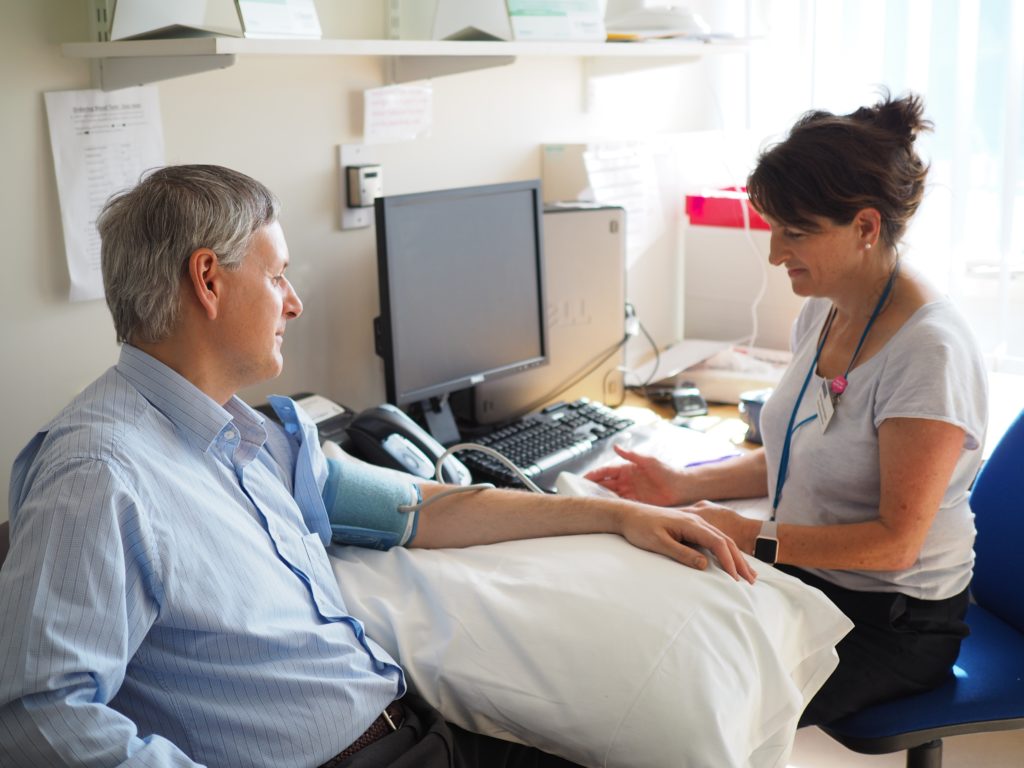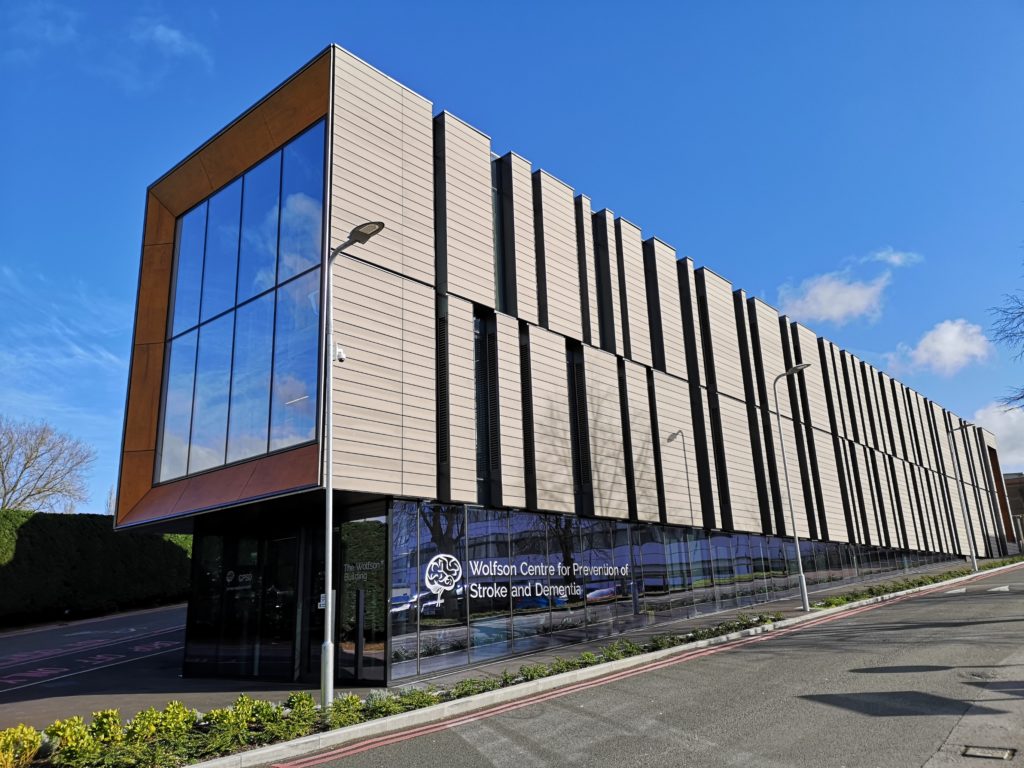Lead: Professor Peter Rothwell
Thanks to the unique OXVASC study, the only project of its kind anywhere that studies patients with all types of acute vascular events, our stroke researchers have access to a large cohort of patients, and work closely with the Stroke Prevention Research Advisory Group.

OxVASC, which has now recruited almost 100,000 participants and has changed clinical practice, is based in the Wolfson Centre for Prevention of Stroke & Dementia, and linked to our research-dedicated Acute Multidisciplinary Imaging and Interventional Centre (AMIIC)
Our research cohort undergo a series of regular tests – including MRI/angiography, echocardiography, ambulatory ECG and remote blood pressure monitoring – to allow us to look for patterns that might show who is most at risk of further cardiovascular events.
The OxVASC study found that recognising ‘warning’ symptoms, like TIAs (transient ischaemic attack, or ‘mini stroke’), was crucial in preventing major stroke. We are now working to produce reliable evidence-based diagnostic criteria, which could have far-reaching implications for the management of millions of patients worldwide every year.
Many patients are concerned about the possibility of developing dementia. OXVASC has uniquely unbiased data on what happens to people’s cognitive abilities following a stroke or TIA, and we are developing and validating the first reliable dementia risk scores for TIA and stroke patients. We are also linking OxVASC data with electronic patient records to determine whether preventing infection after a stroke might reduce cognitive decline.
While the number of people experiencing strokes in the UK has fallen, incidence of stroke among those under the age of 55 has doubled. We are investigating the causes of this, why prevention measures are failing and assess risk factors in our OXVASC cohort and our Thames Valley Young Stroke Study.

Our data is already used by external organisations, such as NICE, to conduct health economics analysis looking at quality of life and health and social care costs after TIA and stroke. We are now developing the first reference data for specific sub-types of stroke.
We are also using new technologies to improve our understanding of stroke, including:
- Investigating whether patients with short episodes of atrial fibrillation following a TIA or stroke have a high enough stroke risk to justify using anticoagulation medication.
- Using a transcranial Doppler ultrasound, determining whether we should repair holes in the hearts of patients aged 60 or over with this condition who are at high risk of stroke.
- Finding out how useful home-telemetric blood pressure monitoring is for diagnosing and predicting stroke risk.
- Assessing whether measuring increased central arterial stiffness and blood flow to and from the brain can predict recurrent stroke and cognitive decline after a TIA or stroke.